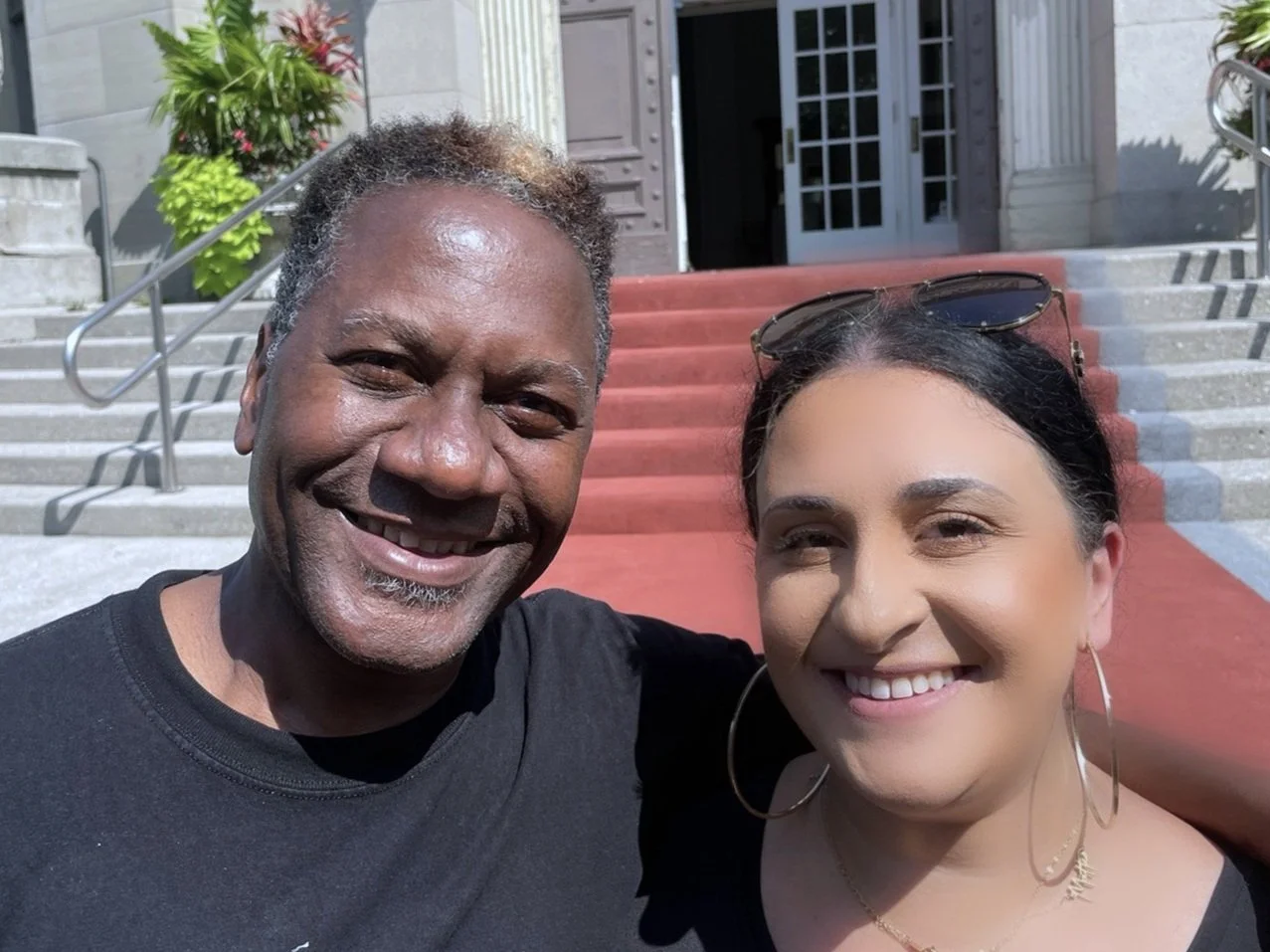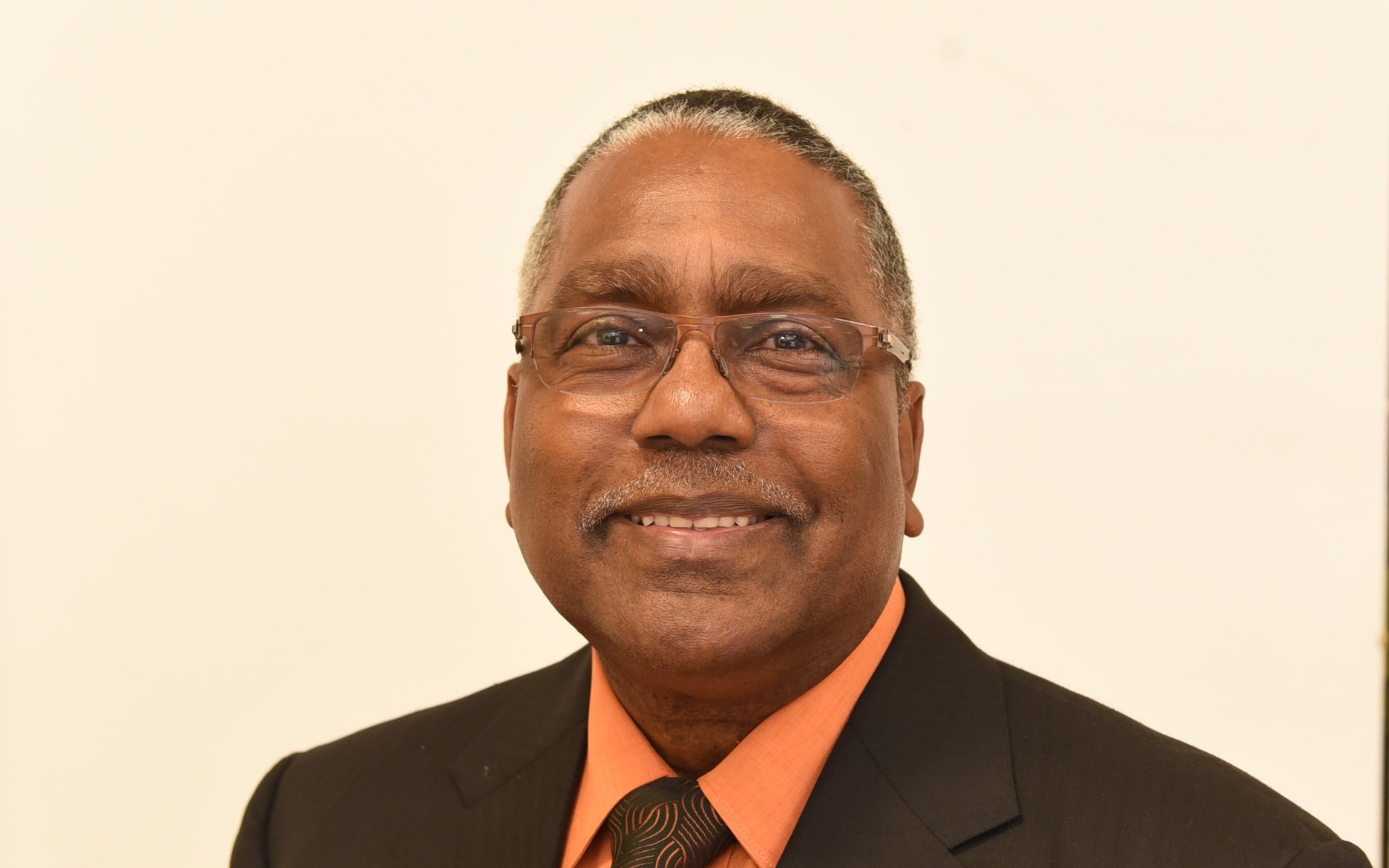Jones P. Madeira was a Caribbean media icon
January 11, 2025
Known for his unique style, unconventional brilliance and pure honesty, Jones P. Madeira stood among his peers in the Caribbean journalistic community.
The veteran media personality passed away on January 10 after a lengthy illness.
Media Specialist Johnson Johnrose held Madeira in high esteem.
“The number of great ones is diminishing quickly and Jones P. was one of them in terms of his ability as a journalist, producer and a manager of people,” noted the former Caribbean News Agency (CANA) Head of News and Caribbean Tourism Organization (CTO) Communications Specialist. “Later on when he went to work with the Caribbean Epidemiology Centre (CAREC), his understanding helped in the way he got information out and spread the word. He was a perfect guy.”
Madeira’s passion to become the best in the profession he chose was fuelled by an inexorable childhood desire to be a broadcaster.
Blessed with a magnetic voice, he was an amateur broadcaster with the Voice of Rediffusion at age 16 while enrolled at Holy Cross College in Arima.
His first media job was with The Trinidad Guardian.
“When the interviewer told me to start in a couple of weeks, I asked to see the studio,” Madeira told me in a December 1998 interview in Toronto. “He looked at me in astonishment before reminding me that his company is in the print business.”
Entering broadcasting full-time as a News Editor/Reporter with the state-owned National Broadcasting Service 610 Radio, he received a British Broadcasting Corporation (BBC) fellowship that led to a two-year full-time assignment as a Producer with the BBC’s Overseas Regional Service.
Caribbean media personality Joseph ‘Reds’ Perreira met Madeira when he was at 610 Radio.
“I was doing cricket commentary for the radio station with Tony Williams and Alvin Corneal,” he pointed out. “Jones P. was part of a Current Affairs team that included Dik Henderson and Alfred Aguiton. He was an excellent broadcaster and producer of programs, very friendly and someone with a very strong backbone.”
Back in T & T, Madeira rejoined 610 Radio after initially agreeing to return to The Trinidad Guardian.
“I was scared to tell the newspaper editor because I knew they had kept my position open while I was doing some PR work,” said Madeira. “
Little did he know he was about to be at the forefront of an extremely volatile period in T & T’s history soon after summoning the courage to inform his editor that he would accept the 610 Radio offer.
Many Trinidadians were outraged after Black Power activists invaded the Roman Catholic Cathedral, considered one of society’s sacred pillars. This led to street protests, eventually leading to ‘The February Revolution’ in 1970.
“The country was in crisis and I was caught between demonstrations and gunfire as I covered the events,” Madeira recounted.
A beacon of journalistic excellence in the Caribbean, the Caricom Community (CARICOM) appointed him as Media Relations & Public Information Advisor in 1976.
Retired T & T diplomat Michael Lashley was the Acting High Commissioner in Guyana at the time.
“Jones was a polite and highly professional media practitioner,” said Lashley who resides in the Greater Toronto Area. “Though genteel and very pleasant, he was no pushover as some might have assumed because of his pleasant demeanour. He stood his ground.”
Sheila Chan, CARICOM’s first employee in 1968, helped Madeira adjust to his new role at the Georgetown-based secretariat.
“Though jovial, he knew his work and was very serious about it,” said the former Administrative officer who turned 91 last month. “He was a nice guy and it was a joy to be around him.”
A close friend of Caribbean Broadcasting Union (CBU) founder Hugh Cholmondeley, they were part of a United Nations Education, Scientific & Cultural Organization (UNESCO) team responsible for promoting the Caribbean integration movement.
Their work included the further development of (CANA) and the CBU of which Madeira was the first full-time Secretary General in 1981.
After a brief period in the state sector, he returned to mass media in 1990 and was in the eye of another turbulent storm.
On July 27 that year, then PM A.N.R. Robinson along with seven Cabinet Ministers and Members of Parliament were held hostage in the country’s parliament building – Red House – by the Jamaat Muslimeen.
Insurgents also took control of the Trinidad & Tobago Television (TTT) building, holding Madeira – the head of News & Current Affairs – and other staffers hostage.
Tuning into the news that evening, viewers watched in dismay as he announced to the nation that a coup had taken place.
During the six-day ordeal that ended peacefully with the Muslimeen surrender, Madeira was the point man in the negotiations between coup leader Abu Bakr and the hostages.
During his tenure at TTT, he pioneered several major regional broadcast projects as a CBU Board member, including the CARIBVISION Project which undertook daily satellite exchanges among regional television systems, live productions of major events in many Caribbean capitals and the CARIBSCOPE Television Magazine which became the prototype of a transcription television program exchange in the Caribbean.
Madeira was back with The Trinidad Guardian when Basdeo Panday became T & T’s fifth PM in late 1995.
Four months into his term, Panday accused Madeira of being ‘racist, vicious and spiteful’ after an editorial in The Trinidad Guardian newspaper – which Madeira was the Editor-in-Chief at the time – asked the then PM to substantiate claims that the opposition People’s National Movement (PNM) party was planning violent demonstrations to destabilize the government.
The PM called for the senior journalist’s dismissal.
Though Panday softened his stance and a ban against the newspaper from covering government events was lifted, Madeira and several of the newspaper’s editors, columnists and reporters resigned following the departure of Managing Director Alwin Chow.
“I cannot work in an environment in which the whole question of press freedom has been an issue and where there are constant attacks on the press that raise serious doubts about whether there will be a free environment,” he told me.
“It hurt me then because I was facing the prospect of unemployment for the first time in 34 years. It hurt me even more to see that so many young journalists were prepared to sacrifice their careers for a cause they believed in. That pained me and caused tremendous stress…I was never grounded in a racist setting so I dismiss such charges as nonsense…I will live to see what the future holds for those who make racism charges where they don’t exist.”
Moving into public health communication in the late 1990s, Madeira was the Caribbean Epidemiology Centre Information Advisor for almost a decade before serving as Manager/Adviser of the Trinidad and Tobago Ministry of Health Communication Unit and the Judiciary of Trinidad and Tobago Court Protocol & Information Manager.
In 2014, he was appointed Editor-in-Chief at T & T Newsday.
Inducted into the CBU Hall of Fame in 2020, Madeira was awarded the Chaconia Medal (Gold) in 2018 which is T & T’s second-highest national decoration.
Three years ago, the University of Trinidad & Tobago bestowed him with an honourary doctorate.
Madeira is survived by his wife of 53 years, Melba, and three children.






